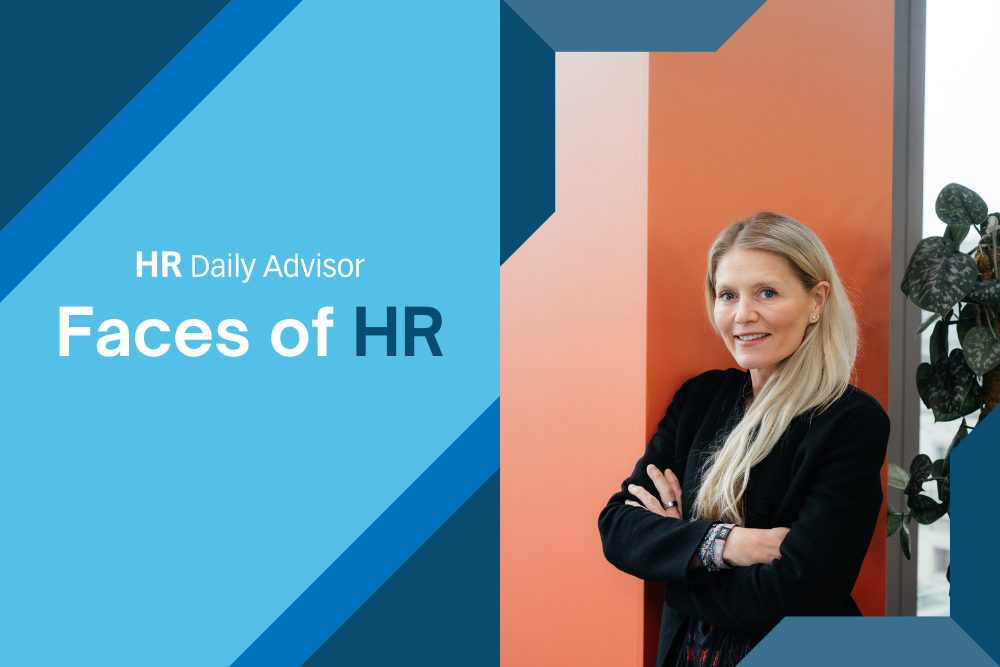Elizabeth Cowper has spent over two decades shaping the people strategies of some of the world’s most iconic brands. From Planet Organic to LVMH and Tapestry (the company behind Coach, Kate Spade, and Stuart Weitzman), she has consistently been at the forefront of building dynamic workplaces. With a reputation as the “Culture Adjuster,” Cowper has been recognized as one of HR’s most influential leaders for five consecutive years. She’s a master at engaging talent, driving well-being, powering the success of women at work, and creating a strong culture of inclusion.
But her journey to the top began with a job she wasn’t even looking for.
After university, Cowper started her career in recruitment. When her company was acquired, it led to a radical development for the time: a new, shared service HR function. Intrigued by an HR Assistant role, she applied and was instantly hooked.
“I found HR, I loved it, and my HR career was born,” she recalls. Her passion was fueled by a curiosity for employment law and a desire to understand the commercial reasoning behind people-related decisions. It’s a commercial curiosity that still guides her today. “It’s always a balance between the employees and the company strategy to get the optimum outcomes for both to succeed.”
In 2020, Cowper took this philosophy and founded her own award-winning business, Ludo, to provide a modern-day EAP tech solution and Fractional HR services. Today, she serves as Chief People Officer at Gen Phoenix, where she leads the people strategy for the world’s first and only producer of sustainable recycled leather. Her career has come full circle—from an unexpected beginning to a purpose-driven role where she is truly putting her passion for people and strategy into practice.
In our latest Faces, meet Elizabeth Cowper.
What’s your best mistake and what did you learn from it?
I love this question! I don’t believe in mistakes. I think we all do things that may be perceived as mistakes, and at the time, we think it is a total disaster, and then we look back and can make sense of the learning. But when you are in the midst of a ‘mistake’, it feels horrible. The kind of mistakes that leave me feeling sick are things such as sending a salary email to the wrong person. It has happened a couple of times in my past. We handle so much confidential information in HR, the lesson is check, check, and check again before you click send. Oh, and always password-protect confidential files.
What’s your favorite part about working in the industry? What’s your least favorite part, and how would you change it?
I love HR. I believe the most important part of a business is its people. You can have the best product in the world but if the people aren’t engaged, or if you can’t attract the right talent, you don’t have a company. So, getting the people part right really matters. Add to that, people are unpredictable, and beautifully so. There is never a dull day.
My least favorite part is that many companies still see HR as a support or administrative function. This is inaccurate. We are a commercial part of the business, and the work we do in HR reaches far beyond contracts of employment and policies.
It sounds like through your experience, you really care about people, and you want to help them feel safe and comfortable, which is important in the industry. Please elaborate here.
Inclusion is the secret sauce for driving a brilliant business. Our differences are to be celebrated, and it means we can make adventurous and diverse decisions. Everyone has the right to feel a sense of safety and belonging, and this runs through the work I do in building a culture of success.
We all have differing needs, and remember, life happens alongside work. Being true to our authentic selves is critical for well-being and mental health. Bringing out the best in someone is imperative to employee engagement. We tend to project onto people and expectations on how we see life, and that just isn’t the way. We must ask questions to allow people to express themselves and then listen without judgment.
How can HR most effectively demonstrate its value to the leadership team?
The HR strategy must align with the business goals. It is imperative. HR needs to be commercial and present data-driven insights and be proactive in how people are managed. There is plenty of reactivity in HR, but we need to be ready for this as much as possible. Managing communication and the talent agenda is important to maximize business and individual performance.
Where do you see the industry heading in five years? Or are you seeing any current trends?
HR leaders who demonstrate commercial acumen are leaving the ‘old school’ HR world behind. HR is partnering more with C-Suite, although sadly, there are still many companies that don’t have HR at the executive level. I think this is a big mistake. The people’s agenda must be a priority.
What are you most proud of?
I am a mother of three, and have always worked full time, including running my own company for five years. I solo parent majority of the time and have built a career while raising my kids. I have said in the past that you can have it all, but not at the same time. Sometimes we need to respond to moving priorities, and I may not get it right all the time, but I feel proud of how I am as a leader at work and at home.
Do you have any advice for people entering the profession?
Never think you are going into HR because you ‘like people.’ Liking people isn’t enough. And believe me, you might not like them some days! And that’s human nature. It is a red flag for me to meet someone wanting to start a career in HR, and their only reason is ‘I like people.’





